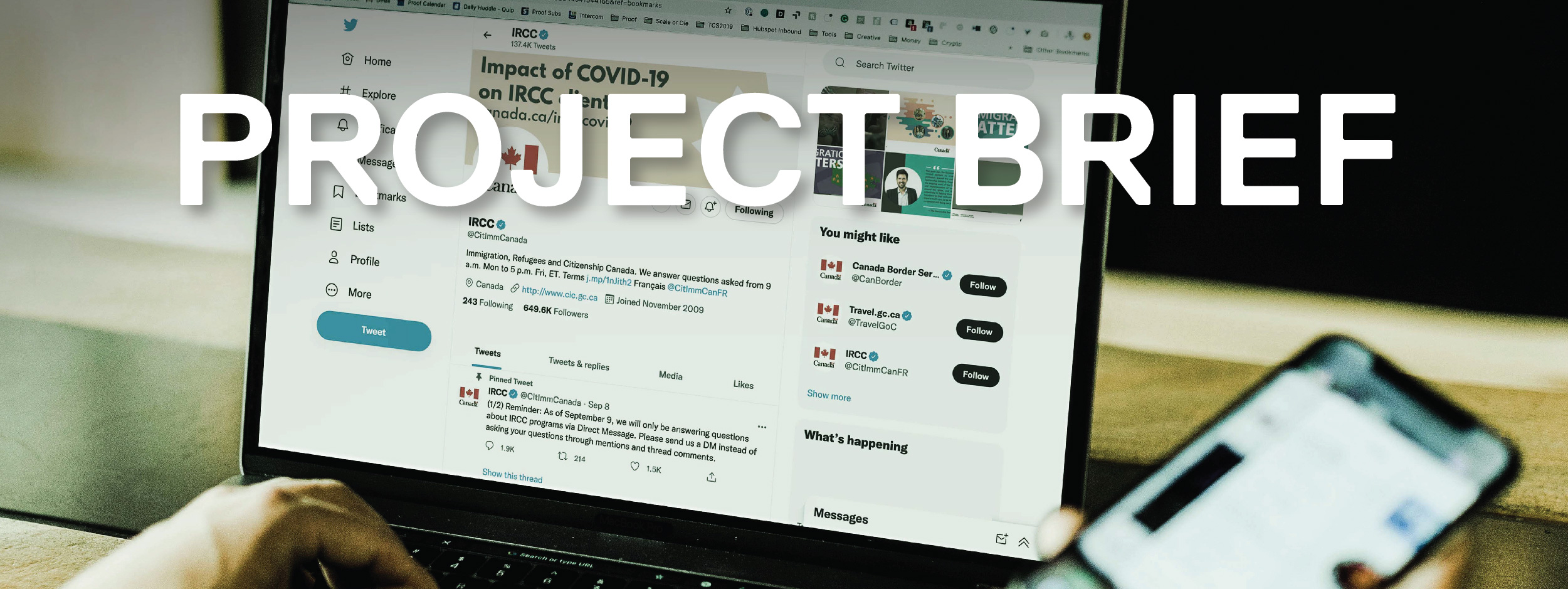Virtual Bridge: Delivering settlement services through social media

This research project aims to analyze the potential for Service Provider Organizations (SPOs) to deliver settlement services through social media channels and applications to better support the needs of newcomers, and, in particular, those living in rural communities and those unable to receive in-person services (such as pre-arrival newcomer clients.)

- How are SPOs currently using social media to reach newcomers in Canada? Do their existing strategies meet the online needs of newcomers?
- What settlement services could be provided online to benefit particular newcomer groups who are unable to access services in person because, for example, they live in rural communities or are pre-arrival newcomers, not yet based in Canada. Further, what newcomer groups may face barriers to online service because of limited digital literacy skills?
- With an understanding of the results of questions #1 and #2, what are the gaps in the SPOs’ online program/service delivery and their communications through social media channels? How can these gaps be overcome?

Social media networking and social media use is widespread in the general population of Canada. In 2020, more than 25 million people were using social media, representing 85% of the population (Statista 2020), a much higher rate of usage than the global average of 54% (Statista 2021a). Among immigrants living in Canada, 80% use social media, which is very similar to the usage levels of native-born Canadians at 79% (2018 Canadian Internet Usage Survey).
However, a newcomers survey conducted by the Association of Canadian Studies and World Education Services found that only 7% of newcomers indicated they found information about settlement services through a social media channel even though they reported using social media often to learn about other types of content, such as immigration policy (9%), health policy (11%), general news about Canada (13%), training (9%) and employment opportunities (17%).
On the other hand, a survey of settlement provider organizations found that 79% of the organizations surveyed were using social media to deliver services and 79% of organizations rated their staff as “good” or “very good” in terms of digital literacy (ACS-WES 2021). There is a clear disconnect between newcomers’ actual use of social media to gather settlement information and the SPOs’ ability to reach their target audience with their communications and services.
A report prepared by the Settlement & Technology Task Group in 2020 surveyed managers and frontline workers at SPOs across Canada and found that they were optimistic about providing services online because they observed that newcomers who had previously not accessed their services were able to connect with them online and benefit from a savings on transportation costs. But those surveyed were unclear about how to restructure and evaluate online programs (STTG 2020). The report points to the need for a major shift of service delivery to online and hybrid options and to prepare SPOs with the knowledge, skills, systems and tools they need to deliver services through online channels and to be able to adapt continuously to a shifting virtual environment.
Given the broader trends of social media usage among newcomers, SPOs need to ramp up their social media adoption for communication and service delivery. If SPOs are unable to shift their service delivery model, they risk experiencing a decrease in service demand. Furthermore, to ensure there are no barriers to certain client groups (i.e. rural or pre-arrival newcomers or those with low digital skills), SPOs need to employ particular strategies that will ensure equitable access to services across the spectrum of newcomers.

This project requires a mixed-methods approach that will incorporate data from SPOs about their client base, statistics on social media engagement, and insights from a large sample survey and focus groups. Activities include:
- Mapping social media activity and service delivery in seven provinces This activity will (i) measure and map the volume, density and reach of the social media networks of five SPO partners, comparing digital services to the in-person services they provide, and (ii) assess their capacity to deliver services through social media.
- Analyzing problem solving and ‘Learning in the Wild’ We will take a system-level approach to analyzing the social media ecosystem in which our SPO partners and non-partners operate. We will look at how information diffuses across online social networks and ‘communities of users’ to help individuals learn and solve problems (e.g. navigate administrative procedures, access training opportunities, find jobs); and we will identify how information channels might fail (e.g. spread mis/disinformation.)
- Understanding newcomers’ use of social media We will conduct a semi-structured survey of newcomers to learn how they use social media and settlement services, and what are their integration outcomes (e.g. obtain employment, etc.)
- Determining who is being left behind according to type of engagement, gender and age We will work with five SPO partners who work directly with newcomers to conduct focus groups to identify barriers to using social media among groups that have low digital literacy and low social media usage rates.
- Identifying employment-ready digital skills Through focus groups organized with Immigrant Employment Council of British Columbia and Invest Ottawa, we will examine whether newcomers use services to improve their online networking skills and whether they perceive that these services have improved their integration outcomes.

Project planning, hiring staff and budget planning

31 March 2024

Immigration, Refugees and Citizenship Canada (IRCC) through the 2021 Service Delivery Improvement Fund

Accessible Community Counselling and Employment Services (ACCES Employment) (external link)
Immigrant Employment Council of BC (external link)
The Neighbourhood Organization (external link)
Jumpstart Refugee Talent (external link)
Saskatchewan Association of Immigrant Settlement and Integration Agencies (SAISIA) (external link)
Atlantic Region Association of Immigrant Serving Agencies (ARAISA) (external link)
AMSSA (Affiliation of Multicultural Societies and Service Agencies of BC) (external link)

social media, newcomers, new immigrants, settlement service organizations, labour market integration, virtual bridge

